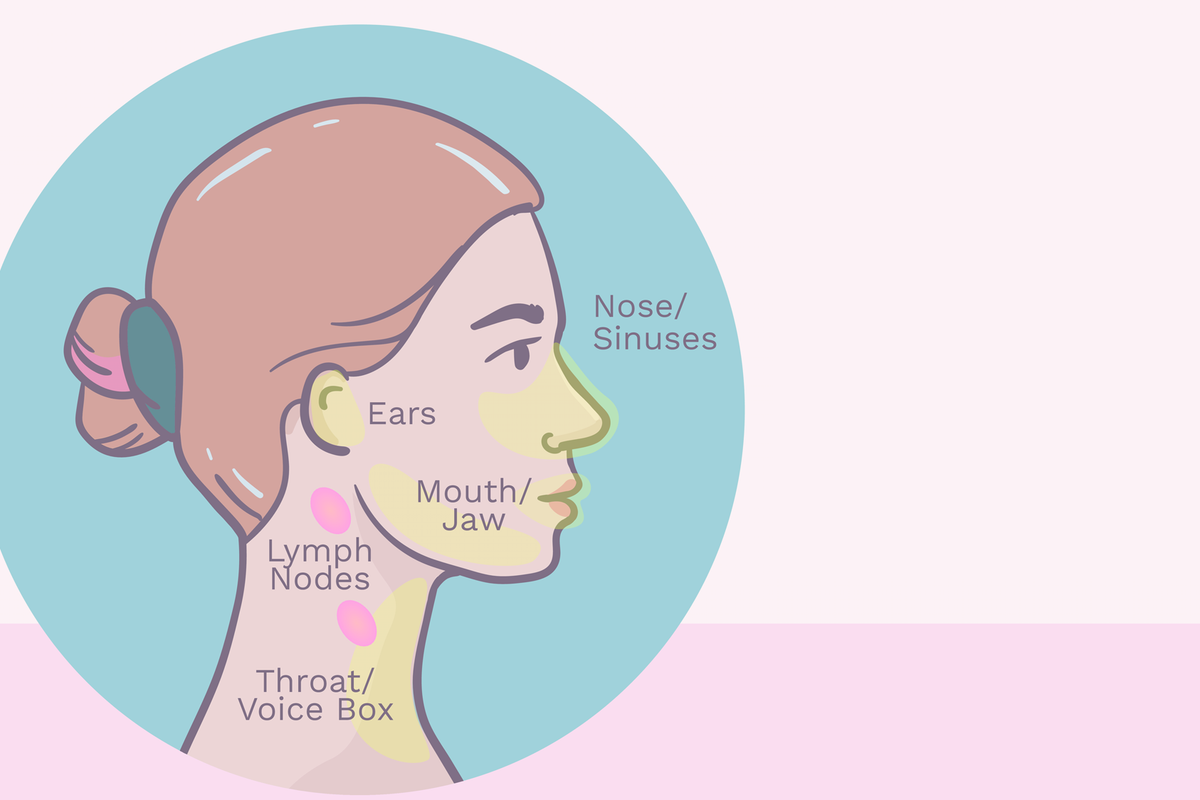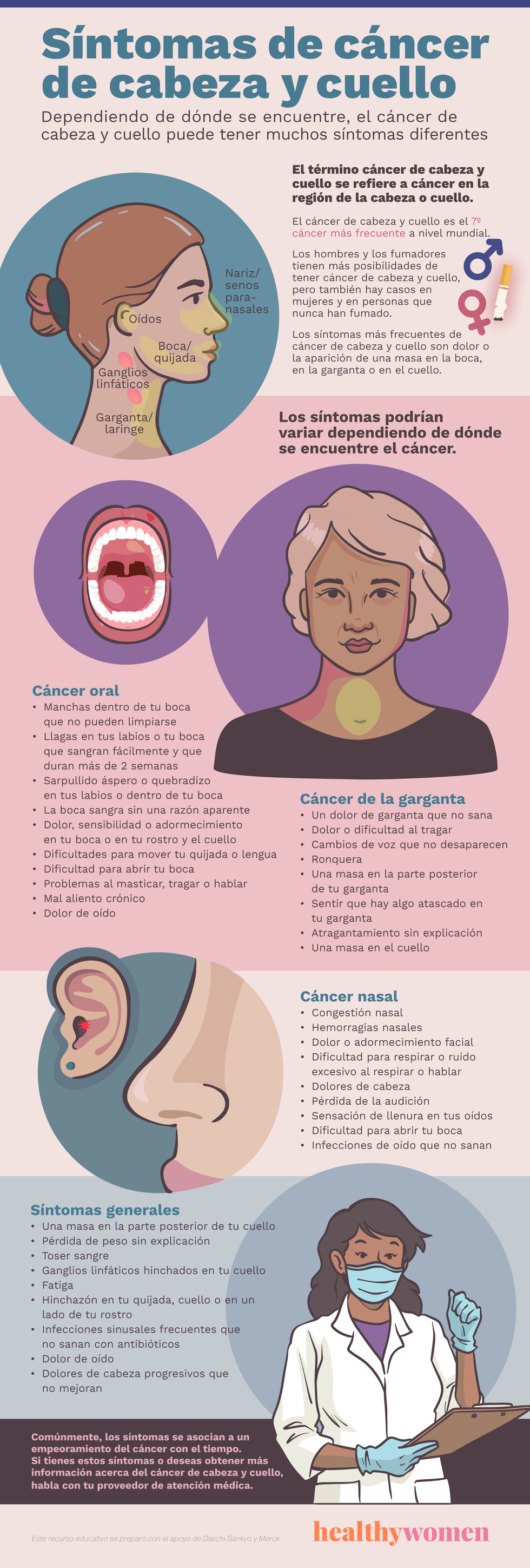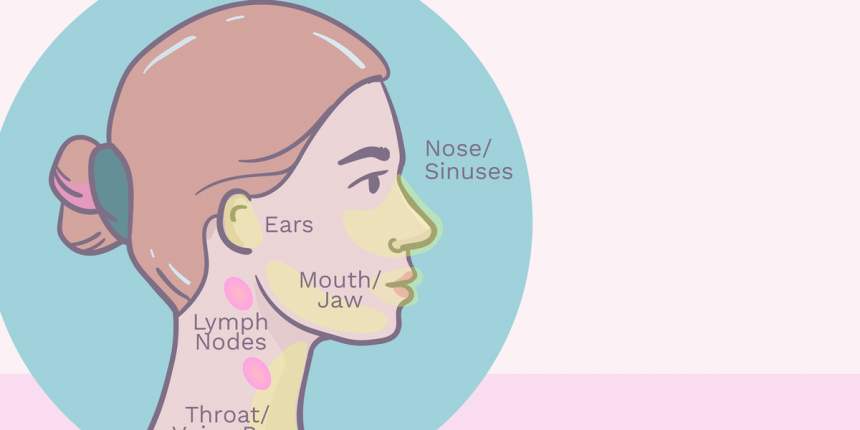
Eleni Rettig, M.D., reviewed this document

The term head and neck cancer refers to cancer in the head or neck region.
- Head and neck cancer is the 7th most common cancer worldwide.
- Men and smokers are more likely to have head and neck cancer, but there are also cases in women and people who have never smoked.
The most common symptoms of head and neck cancer include pain or the appearance of a mass in the mouth, throat, or neck.
Symptoms may vary depending on the location of the cancer.
Oral Cancer
- Spots inside your mouth that cannot be cleaned
- Sores on your lips or mouth that bleed easily and last more than 2 weeks
- Rough or brittle rash on your lips or inside your mouth
- Mouth bleeds for no apparent reason
- Pain, sensitivity, or numbness in your mouth or face and neck
- Difficulty moving your jaw or tongue
- Trouble opening your mouth
- Issues with chewing, swallowing, or speaking
- Chronic bad breath
- Earache
Throat Cancer
- A sore throat that does not heal
- Pain or difficulty swallowing
- Voice changes that do not go away
- Hoarseness
- A mass in the back of your throat
- Feeling like something is stuck in your throat
- Unexplained choking
- A lump in the neck
Nasal Cancer
- Nasal congestion
- Nosebleeds
- Facial pain or numbness
- Difficulty breathing or excessive noise when breathing or speaking
- Headaches
- Hearing loss
- Feeling of fullness in your ears
- Trouble opening your mouth
- Ear infections that do not heal
General Symptoms
- A lump in the back of your neck
- Unexplained weight loss
- Coughing up blood
- Swollen lymph nodes in your neck
- Fatigue
- Swelling in your jaw, neck, or one side of your face
- Frequent sinus infections that do not heal with antibiotics
- Earache
- Progressive headaches that do not improve
Commonly, symptoms are associated with worsening cancer over time.
If you experience these symptoms or want more information about head and neck cancer, talk to your healthcare provider.
This educational resource was prepared with the support of Daiichi Sankyo and Merck.
.






